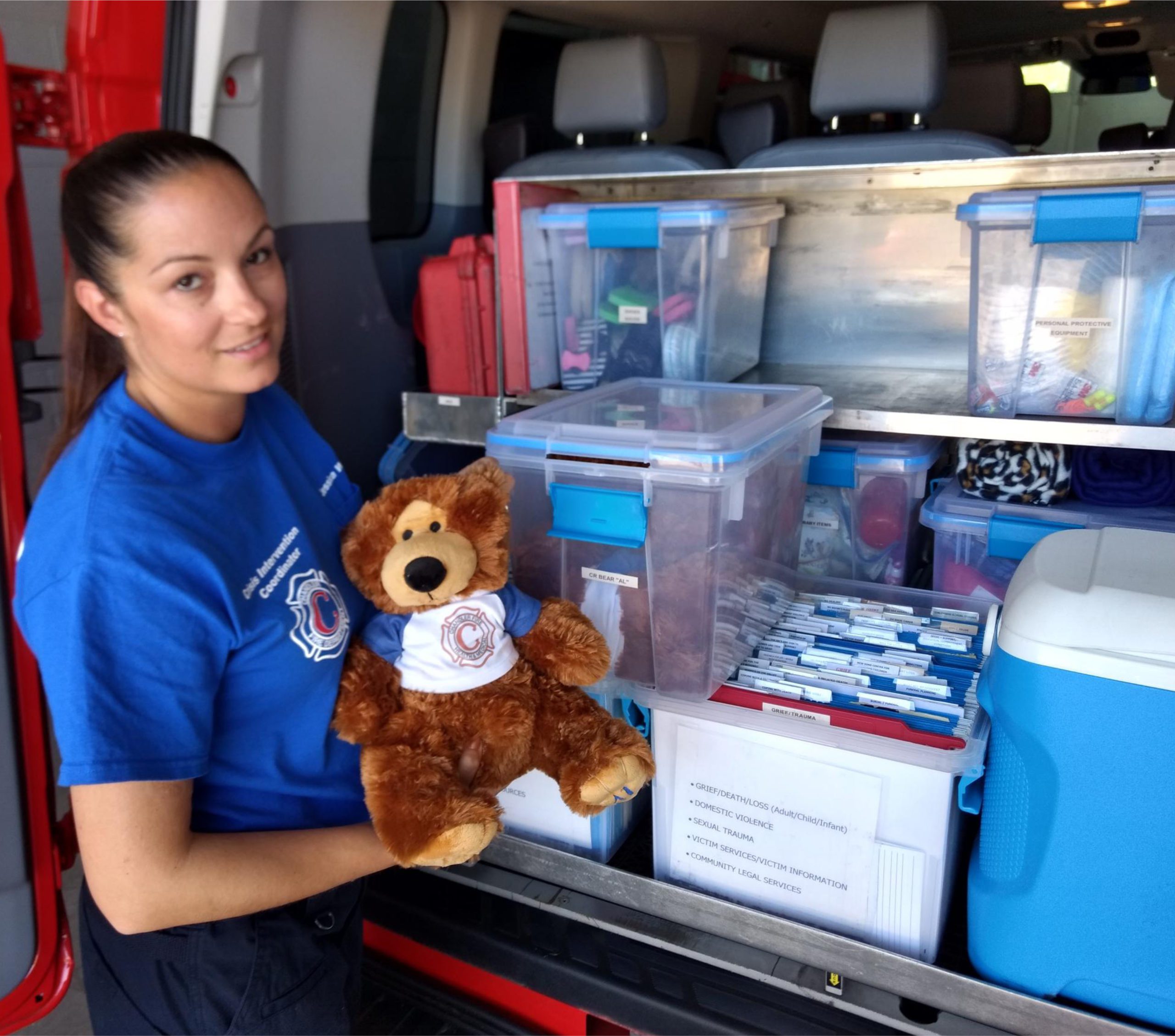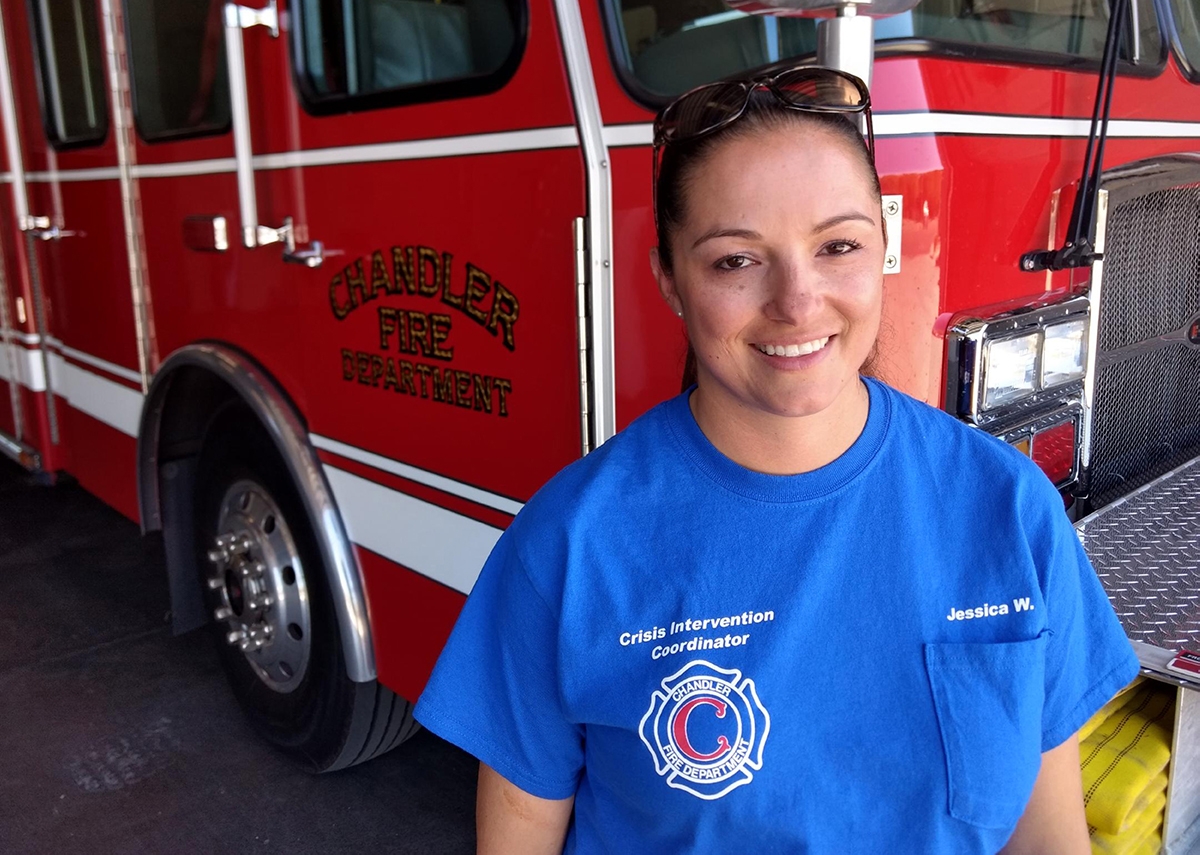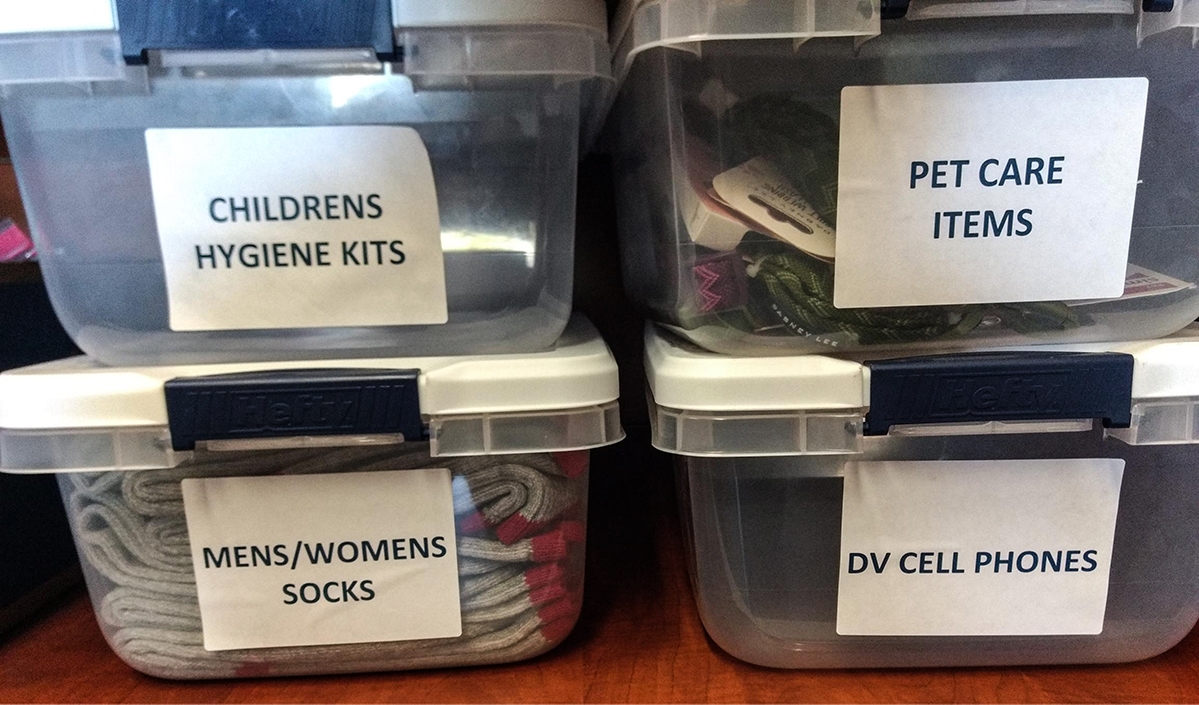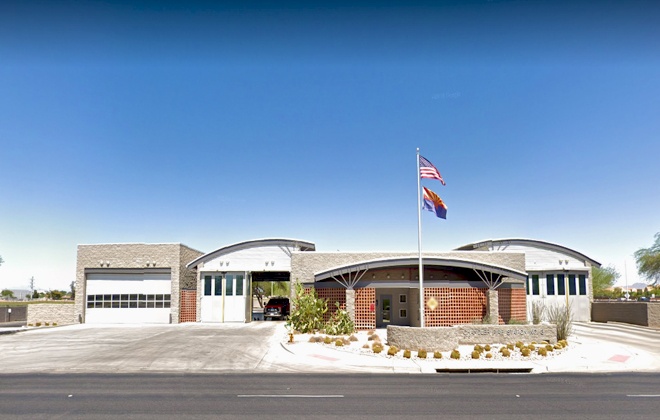Above and Beyond Fighting Fires:
Crisis Response Team Making an Impact in Chandler
The Chandler Fire Departments Crisis Response Team 288 (CR288) is called upon to deal with some of the worst situations imaginable, including death, pediatric emergencies, and violent crimes. Within minutes, they’re dispatched along with firefighters and police to incidents where they provide emotional support, navigation, and guidance to help people get back on the road to emotional recovery after trauma.
CR288 Coordinator Jessica Westmiller doesn’t seek thanks or credit for helping people through calamity. She’s just gratified her team can help.
“It’s all about heart,” she says earnestly.
Growing up in upstate New York, Jessica always knew she wanted to help others, but didn’t know how. Then, as is often the case, tragedy struck out of nowhere. When Jessica was only eight, her mother was in a horrible car accident. Her head was severely wounded, needing over 300 stitches.
Beyond the physical impact, her mother sustained brain injuries with symptoms that have remained with her throughout her life, including sensitivity to sound and light, as well as headaches. She can get overwhelmed easily and tires quickly. She initially received short-term occupational and physical therapy to help her overcome her newfound impairments. But after returning to work, the effects of her injuries remained. Over 30 years ago, the awareness and resources for those impacted by brain injury were not as accessible as they are today.
If there’s a silver lining, young Jessica found her life mission through this accident: helping people overcome trauma.
In 2000, she received her associate’s degree in human services. Afterward, she moved to Arizona and enrolled at Arizona State University, earning her BSW and MSW through the College of Public Programs. She has subsequently been able to serve adults and children (her first love) in a variety of settings, including Head Start and Maricopa County’s Regional Behavioral Health Authority (RBHA).
Jessica also built upon her resume while working with Child Protective Services, investigating allegations of abuse, neglect and exploitation. At the same time, she provided emotional support as a Hospice Social Worker for individuals and their support systems during their final days. Jessica sums up the experience with typical modesty: “It was a privilege to work with them.”
During her time at the Brain Injury Alliance of Arizona (BIAAZ) as an MSW intern, she learned about the free resources that are available to survivors of brain injuries and their families. What’s more, Jessica developed a statewide peer mentoring program for people with Traumatic Brain Injuries (TBIs), as well as their caregivers.
To this day, Jessica feels BIAAZ is an indispensable asset and often refers survivors of brain trauma to the Alliance. “The BIAAZ offers options, support, and coordination, she says. “When people realize what’s out there for them, they’re very appreciative. We hope to get them to a place where they can make decisions [for themselves].”
“Jessica is a shining example for people looking to pursue social work as a career,” says BIAAZ Executive Director Carrie Collins-Fadell. “We saw it when she was here and are thrilled to maintain the relationship. Jessica doesn’t talk a lot about helping; it’s just who she is.”
Now in her eighth year as CR288’s Crisis Response Team Manager, Jessica is clear about her team’s mission. “We are social workers, counselors, and crisis interventionists there to support people and guide them through the next steps. [When responding to a call], we slow things down; we get an accurate history, and identify any needs. That’s why being in the home or on-scene of the initial incident is essential to getting the complete picture.
Jessica also emphasizes the importance of providing emotional as well as physical support. “We are there to hold a hand, let them know they’re not alone, and that they’ll get through this. We ensure there is hope.”
Inside the CR288 van is a wide range of donated emergency supplies that make a world of difference for someone in the middle of a crisis, including:
- Pet care items
- Toys for children on-scene
- Hygiene kits for the homeless
- Clothes for victims of crime
- Cell phones to call 911
- Flip flops and socks for adults and kids
- Blankets to hand out after a fire
- Over 300 informational brochures and resources
Jessica is fulfilled by being able to reach out to people in the community every single day. “It truly fills my heart when people say, ‘I never thought I’d get through this, but you were there.’ So, the reward isn’t monetary. It’s knowing people now feel safe. And hey, who doesn’t love the fire department?”
As Jessica says, “It’s all about heart.”
ABOUT BRAIN INJURY ALLIANCE OF ARIZONA
The Brain Injury Alliance of Arizona (BIAAZ) is the only statewide nonprofit organization dedicated to improving the lives of adults and children with all types of brain injuries through prevention, advocacy, awareness, and education. BIAAZ also houses the Arizona Brain Health Resource Center, a collection of educational information and neuro-specific resources for brain injury survivors, caregivers, family members, and professionals.
What began in 1983 as a grassroots effort has grown into a strong statewide presence, providing valuable life-long resources and community support for individuals with all types of brain trauma at no charge.
The Brain Injury Alliance of Arizona:
- Works with the Congressional Brain Injury Task Force
- Houses Arizona Brain Health Resource Center
- Hosts the Statewide Opioid Use Disorder & Cognitive Impairment Workgroup
- Deploys a Statewide Opioid Use Disorder & Cognitive Impairment Response Team with peer support, training and family wraparound services
- Facilitates the Brain Health Advisory Council
- Manages a Statewide Neuro Info-Line 888-500-9165











